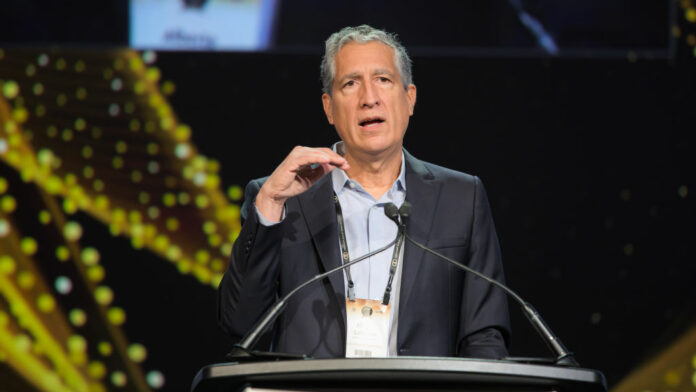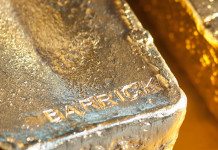
ANGLOGOLD Ashanti CEO Alberto Calderon said he was open to selling less profitable mines if the firm’s $2.5bn offer for Centamin announced today was approved.
“In my view, you cannot shrink into greatness but [this deal] allows you to be focused on tier one assets and have another look at your tier two assets,” he said in response to a question during an analyst and investor conference call.
“It definitely opens that road. In our long term strategy, it is to be focused on tier one assets and production.”
Centamin’s proposed $373m Doropo project in Côte d’Ivoire might also fall into the tier two category given that its average production of 167,000 oz/year over its 10-year life (as per a definitive feasibility report) would most likely fall below AngloGold’s criteria.
“Doropo is very interesting and it has value … but the overwhelming value is on Sukari,” said Calderon of Centamin’s 470,000 oz/year Egyptian mine. “Is it [Doropo] worth more outside AngloGold? We don’t know.
“But we would be very open to that. Given that we are focused on tier one assets that would indicate [Doropo could be sold],” he said.
Calderon, however, declined to comment on possible interloper risk for Centamin. The UK-listed firm’s share price had rocketed about a quarter today. At 143.50 pence per share, Centamin is way above the 163p/share offer imputed by AngloGold’s cash and share offer bid earlier today, itself a 36% premium to Centamin’s close on Monday (September 9).
Commenting on the rationale for the transaction, Calderon said AngloGold’s focus on cost control and its balance sheet would enable it to drive more efficiencies from Centamin’s Sukari and growth.
Sukari has potential for expansion at depth in multiple directions. Centamin had also been awarded a block of prospective property, called EDX (Eastern Desert Exploration) in Egypt.
Profit share
One aspect of the proposed transaction that raised eyebrows was Centamin’s profit share agreement with the Egyptian government. A renewable 30-year agreement with the state sees Centamin part with 50% of its operating profit from Sukari.
“Shareholders are not benefiting from the full leverage of the gold price. That will be in the [acquisition] price, but what is the premium for?” asked Adrian Hammond, an analyst for Standard Bank Group Securities.
Calderon responded that other mines in the group’s portfolio were similarly liable. “All operations you are talking about a 50% state take. It doesn’t matter how they take it. In Australia it’s 49% or 50% – that’s when they let you operate,” he said.
In terms of Egypt’s share of Sukari’s operating profit, capital and exploration costs are clawed back over three years. In the event Sukari were lossmaking, these costs would have to be written off by the mine’s owner.
“We looked at the agreement and were comfortable it allowed us to be profitable and net asset value accretive,” Calderon said. “It is very competitive with all of our other operations and hopefully the same when we go underground.”
There were also queries about whether AngloGold’s deal announcement today represented a strategic departure. Since taking over at AngloGold in September 2021, Calderon has focused on an internally focused strategy of asset optimisation.
He has also withdrawn the group from South Africa which is considered risky from a regulatory, social, and mine safety point of view. But he said today competing for tier one assets was completely within the firm’s strategic ambit.
“It is not a change in strategy. It is a focus on ‘tier ones’ and value and that’s where we are,” he said, adding that the group had run the rule over other potential assets in Canada where premia of 70% were most likely to bid competitively.










